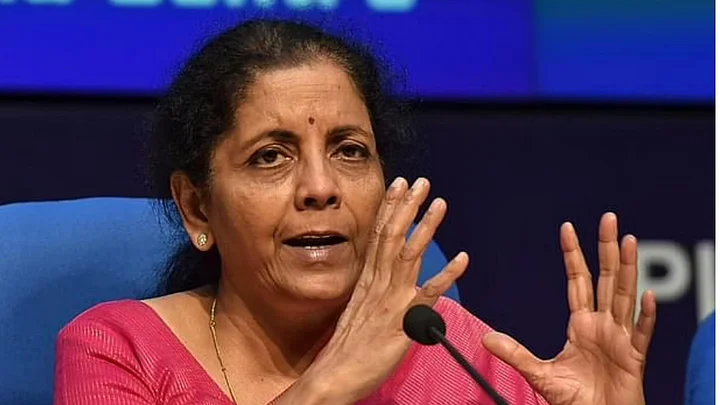Finance Minister Nirmala Sitharaman on Tuesday, 19 July, defended the 5% GST imposition on food items, effective 18 July, and released a list of 14 items that will not attract any GST, when "sold loose, and not pre-packed or pre-labeled."
This comes on the heels of Lok Sabha and Rajya Sabha being adjourned for the second consecutive day amid protests by the Opposition over imposition of GST and price rise.
Sitharaman took to Twitter to clarify the "misconceptions" around the new tax regime and said that only the "modalities of GST imposition" had been changed to avoid tax leakage and not the coverage.
She further argued that the decision was unanimously agreed upon by the non-BJP ruled states at the meeting last month.
Adding that this was not the first time that such food articles were being taxed, she explained that states were collecting significant revenue from foodgrain in the pre-GST regime as well.
Punjab alone, she said, collected more than Rs 2,000 crore on food grain while UP collected Rs 700 crore.
After the GST Council on 29 June, during its 47th meeting, decided to hike tax rates on a dozen goods and services, the proposed surge drew flak from across the political spectrum.
While some politicians have called it an "apocalypse for households," others have called it "anti-environmental."
Why Was the Decision Taken? FM Explains
In a fourteen-thread tweet, she justified the government's decision. According to her:
When GST was rolled out, a rate of 5% was made applicable on 'branded' cereals, pulses, flour. Later, this was amended to tax only such items which were sold under a 'registered' brand or brand on which enforceable right was not foregone by the supplier
However, soon rampant misuse of this provision was observed by reputed manufacturers and brand owners. Gradually GST revenue from these items fell significantly
This was resented by suppliers and industry associations who were paying taxes on branded goods
They wrote to the government to impose GST uniformly on all packaged commodities to stop such misuse. This rampant evasion in tax was also observed by states
The Fitment Committee – consisting of officers from Rajasthan, West Bengal, Tamil Nadu, Bihar, Uttar Pradesh, Karnataka, Maharashtra, Haryana, and Gujarat – examined this issue over several meetings
It has been prescribed that GST on these goods shall apply when supplied in "pre-packaged and labelled" commodities
For example, items like pulses, cereals like rice, wheat, and flour, etc, earlier attracted GST @ 5% when branded and packed in unit container. From 18.7.2022, these items would attract GST when “pre-packaged and labeled”
(At The Quint, we question everything. Play an active role in shaping our journalism by becoming a member today.)
